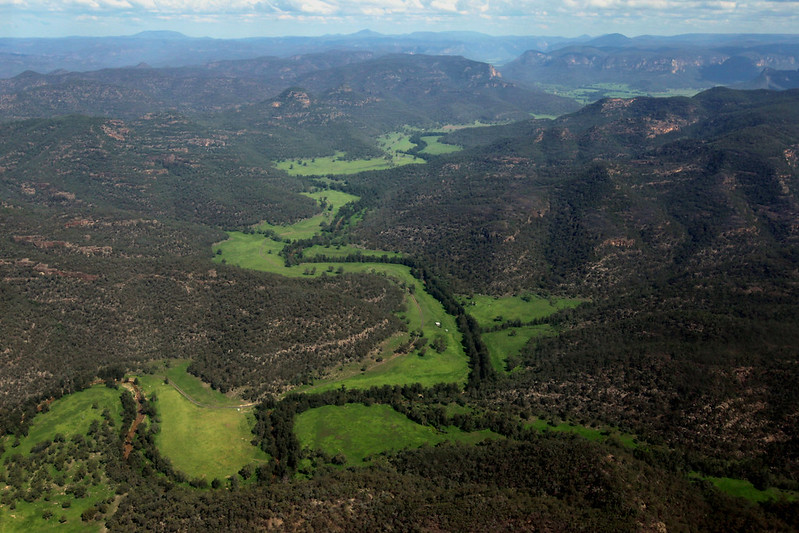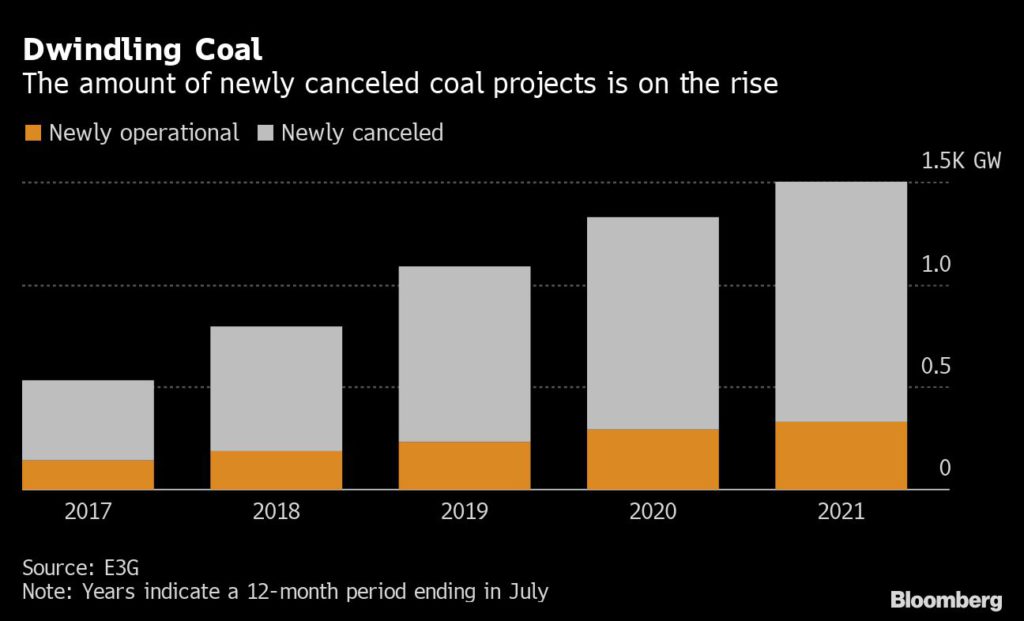Tranquil valley’s triumph over coal shows hurdles for industry

In the Bylong Valley in the verdant hills of southeastern Australia, a community’s victory over a planned coal mine shows the rising opposition that’s stalling new supply of the fuel and pushing prices higher.
For campaigners in this pastoral countryside adjacent to a world heritage site, a decision this month by the High Court of Australia was the culmination of a years-long legal battle against a global corporate giant. For the loser, Korea Electric Power Corp., and for the coal industry as a whole, it was just the latest blow as sentiment hardens against the most-polluting fossil fuel.
The world’s biggest miners have been retreating from coal under mounting pressure from investors and climate activists. While a global power shortage and a slow transition to cleaner energy continues to boost demand for fossil fuels, the Bylong Valley case illustrates the growing difficulties in getting new coal projects approved and running.
“This project would have generated over 200 million tons of greenhouse gas emissions,” said Rana Koroglu, a managing lawyer at the Environmental Defenders Office, and who represented the Bylong Valley Protection Alliance. “It would have been an affront to global efforts to limit climate change.”
In 2010, the South Korean utility known as Kepco made a proposal to develop the Bylong Valley to produce up to 6.5 million tons per year of coal for about 25 years, according to the project website. Bylong residents fought against the plan, fearing Kepco’s mine would threaten farming and water security in the pristine valley, which is next to the Greater Blue Mountains, a Unesco world heritage site.
The New South Wales Independent Planning Commission rejected the proposal in 2019, saying it would have unacceptable impacts on issues like groundwater, the climate, agricultural land and the area’s scenic and heritage values. That decision was upheld through various legal challenges, and the High Court sealed the project’s fate this month by dismissing Kepco’s request for an appeal.
Kepco, which invested more than 800 billion won ($669 million) in the Bylong project, is currently reviewing its options, according to a spokesman. One proposal would be to convert the site into a green hydrogen cluster.
The company, which remains one of the largest financiers of oil and gas, retains coal power projects in Vietnam and Indonesia.
Opposition to new mine and power station projects, and tougher access to finance, means the global pipeline of new coal-fired plants has declined almost 70% since 2015, according to a report from climate think tank E3G. Investors including BlackRock Inc. have also been limiting exposure to both coal pits and power stations.

Rio Tinto Group became the first major mining company to move away from coal in 2018, while BHP Group has sold assets and is considering an exit from thermal coal used in power stations. Even Glencore Plc, a major coal champion, previously agreed to cap its production.
“Big institutional investors recognize that the writing is on the wall for coal and are shifting their capital elsewhere,” said Leo Roberts, a research manager at E3G’s fossil fuel transitions team.
Governments, including South Korea, have been pushing to halt financing of overseas coal power projects. However, China and India dealt a blow to efforts to limit use of the fuel by watering down an agreement at the COP26 climate summit that originally called for a “phase-out” of unabated coal power.
Coal continues to dominate the global power mix and demand is rising this year in key markets, including in gas-starved Europe. Combined with the lack of new mines, that’s pushing prices higher. High-quality thermal coal at Newcastle port in Australia, the benchmark in Asia, set new records in January and again this month, according to Australian producer Whitehaven Coal Ltd.
The surge in prices has stoked concerns from some campaigners that private firms and smaller players could seek to develop new assets, or extend the lives of aging mines. Still, falling costs of renewables make that less likely, said Oh Dongjae, a researcher at Seoul-based Solutions for Our Climate.
“Theoretically, higher fossil fuel prices should restrain demand in the coming years, prompting countries to accelerate their transition to cleaner sources,” he said by phone.
(By Heesu Lee, with assistance from Takaaki Iwabu)
{{ commodity.name }}
{{ post.title }}
{{ post.date }}




Comments
David montgomerie
Good news, boo hoo to coal miners in Australia that have rediculous wages , should of saved for rainy day .